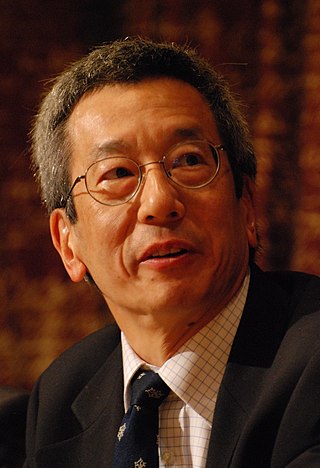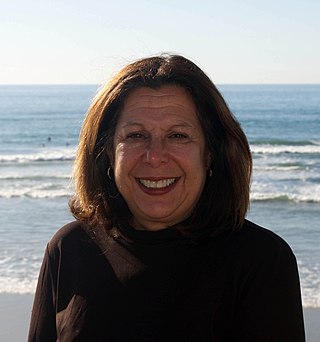Yuan-Cheng "Bert" Fung was a Chinese-American bioengineer and writer. He is regarded as a founding figure of bioengineering, tissue engineering, and the "Founder of Modern Biomechanics".

Henry Frederick "Fritz" Schaefer III is a computational and theoretical chemist. He is one of the most highly cited chemists in the world, with a Thomson Reuters H-Index of 121 as of 2020. He is the Graham Perdue Professor of Chemistry and Director of the Center for Computational Chemistry at the University of Georgia. Before becoming professor at Georgia he was professor at University of California, Berkeley and in 2004, he became Professor of Chemistry Emeritus, at UC Berkeley

Martin Karplus is an Austrian and American theoretical chemist. He is the Director of the Biophysical Chemistry Laboratory, a joint laboratory between the French National Center for Scientific Research and the University of Strasbourg, France. He is also the Theodore William Richards Professor of Chemistry, emeritus at Harvard University. Karplus received the 2013 Nobel Prize in Chemistry, together with Michael Levitt and Arieh Warshel, for "the development of multiscale models for complex chemical systems".
John Ross was a scientist in physical chemistry and the Camille and Henry Dreyfus Professor of Chemistry at Stanford University.

Sir David Charles Clary, FRS is a British theoretical chemist. He was president of Magdalen College, Oxford, from 2005 to 2020. He was the first chief scientific adviser to the Foreign and Commonwealth Office from 2009 to 2013. He is a Professor of Chemistry at the University of Oxford.

Roger Yonchien Tsien was an American biochemist. He was a professor of chemistry and biochemistry at the University of California, San Diego and was awarded the Nobel Prize in Chemistry for his discovery and development of the green fluorescent protein, in collaboration with organic chemist Osamu Shimomura and neurobiologist Martin Chalfie. Tsien was also a pioneer of calcium imaging.
The Irwin and Joan Jacobs School of Engineering is an undergraduate and graduate-level engineering school offering BS, BA, MEng, MS, MAS and PhD degrees at the University of California, San Diego in San Diego, California. The Jacobs School of Engineering is the youngest engineering school of the nation's top ten, the largest by enrollment in the University of California system, as well as the largest engineering school on the West Coast and the ninth-largest in the country. More than thirty faculty have been named members of the National Academies. The current dean of the Jacobs School of Engineering is Albert P. Pisano. The Jacobs School of Engineering sends a monthly news email which anyone can subscribe to.

Michael Lawrence KleinNAS is Laura H. Carnell Professor of Science and Director of the Institute for Computational Molecular Science in the College of Science and Technology at Temple University in Philadelphia, US. He was previously the Hepburn Professor of Physical Science in the Center for Molecular Modeling at the University of Pennsylvania. Currently, he serves as the Dean of the College of Science and Technology and has since 2013.
Dr. Suresh Subramani is the Global Director of the Tata Institute for Genetics & Society, former Executive Vice Chancellor for Academic Affairs, and a Distinguished Professor of Molecular Biology at the University of California, San Diego. A highly distinguished cell and molecular biologist, Dr. Subramani has been a member of the UC San Diego faculty since 1982.

Donald Gene Truhlar is an American scientist working in theoretical and computational chemistry and chemical physics with special emphases on quantum mechanics and chemical dynamics.

Don W. Cleveland is an American cancer biologist and neurobiologist.
Rommie E. Amaro is a professor and endowed chair of chemistry and biochemistry and the director of the National Biomedical Computation Resource at the University of California, San Diego. Her research focuses on development of computational methods in biophysics for applications to drug discovery.

Emily Ann Carter is the Gerhard R. Andlinger Professor in Energy and the Environment and a professor of mechanical and aerospace engineering, the Andlinger Center for Energy and the Environment, and the Program in Applied and Computational Mathematics at Princeton University. She has been on the faculty at Princeton since 2004, including as serving as Princeton's Dean of the School of Engineering and Applied Science from 2016 to 2019. She moved to UCLA to serve as executive vice chancellor and provost and a distinguished professor of chemical and biomolecular engineering, before returning to Princeton in December 2021. Carter is a theorist and computational scientist whose work combines quantum mechanics, solid-state physics, and applied mathematics.
Susan Taylor is an American biochemist who is a Professor of Chemistry and Biochemistry and a Professor of Pharmacology at the University of California, San Diego. She is known for her research on protein kinases, particularly protein kinase A. She was elected to the Institute of Medicine and the United States National Academy of Sciences in 1996.

Biman Bagchi is an Indian scientist currently serving as a SERB-DST National Science Chair Professor and Honorary Professor at the Solid State and Structural Chemistry Unit of the Indian Institute of Science. He is a theoretical physical chemist and biophysicist known for his research in the area of statistical mechanics; particularly in the study of phase transition and nucleation, solvation dynamics, mode-coupling theory of electrolyte transport, dynamics of biological macromolecules, protein folding, enzyme kinetics, supercooled liquids and protein hydration layer. He is an elected fellow of the Indian National Science Academy, the Indian Academy of Sciences, The World Academy of Sciences and an International honorary member of the American Academy of Arts and Sciences. Along with several scientific articles, he has authored three books, (i) Molecular Relaxation in Liquids, (ii) Water in Biological and Chemical Processes: From Structure and Dynamics to Function, and (iii) Statistical Mechanics for Chemistry and Materials Science.
Clifford P. Kubiak is an American inorganic chemist, currently a Distinguished Professor in Chemistry and Biochemistry and the Harold C. Urey Chair in Chemistry at the University of California, San Diego. Over the course of his career, Kubiak has published over 200 scientific articles. He has also received the American Chemical Society Award in Inorganic Chemistry, and is a Fellow of the American Academy of Arts and Sciences and American Chemical Society. In 2020 he was elected to the National Academy of Sciences.

Vicki H. Grassian is a distinguished professor in the department of chemistry and biochemistry at the University of California, San Diego. She also holds the distinguished chair in physical chemistry.
Kimberly A. Prather is an American atmospheric chemist. She is a distinguished chair in atmospheric chemistry and a distinguished professor at the Scripps Institution of Oceanography and department of chemistry and biochemistry at UC San Diego. Her work focuses on how humans are influencing the atmosphere and climate. In 2019, she was elected a member of the National Academy of Engineering for technologies that transformed understanding of aerosols and their impacts on air quality, climate, and human health. In 2020, she was elected as a member of the National Academy of Sciences. She is also an elected Fellow of the American Philosophical Society, American Geophysical Union, the American Association for the Advancement of Science, American Philosophical Society, and the American Academy of Arts and Sciences.
Kim K. Baldridge is an American theoretical and computational chemist who works to develop quantum mechanical methodologies and apply quantum chemical methods to problems in life sciences, materials science, and general studies. She is professor and vice dean in the School of Pharmaceutical Science and Technology of Tianjin University in China, where she also directs the High Performance Computing Center.
Julian I. Schroeder is an American biologist. He is a Distinguished Professor and Novartis Chair at the University of California, San Diego. Schroeder's research involves identifying the basic molecular mechanisms by which plants respond to and mount resistance to environmental stresses, with a focus on drought, salinity, and the rising atmospheric CO2 concentration.









